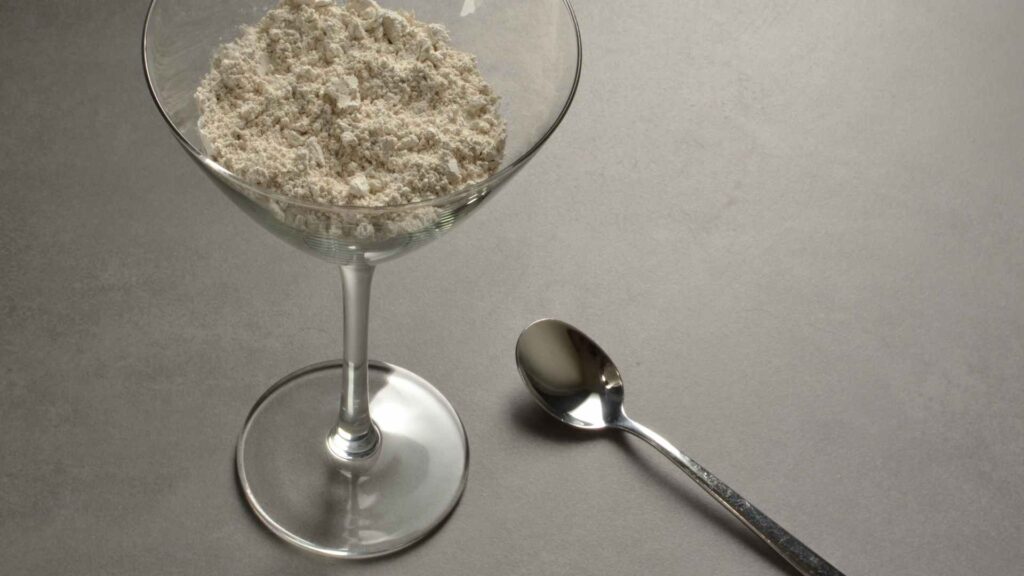Table Of Content
ToggleForget the cheese! If you’re looking for a natural way to outsmart those pesky mice, Diatomaceous Earth (DE) might be your secret weapon.
This guide will explore how DE can disrupt unwelcome houseguests and restore peace to your home. As an expert exterminator I’ll delve into how DE works, its effectiveness against mice, and the best ways to use it safely and strategically.
When mice come into contact with DE, the powder clings to their fur. As they groom, they ingest the DE particles, damaging their waxy outer coating and leading to dehydration. This ultimately kills the mice.
Diatomaceous Earth is a powder composed of fossilized algae skeletons called diatoms. These microscopic single-celled organisms have been around for millions of years, and when they die, their hard outer shells accumulate at the bottom of oceans and lakes. Over time, these deposits are processed into a fine, light-colored powder.
Here’s where things get interesting for pest control. DE’s secret lies in its microscopic structure. These tiny fossilized shells have sharp, jagged edges that act like millions of miniature knives. When insects and other pests with exoskeletons, come into contact with DE, the powder clings to their bodies and disrupts their waxy outer coating. This damages the pest’s exoskeleton, leading to dehydration and eventually death.
The good news: food-grade DE is generally safe for humans and pets (when used correctly). However, it can irritate the lungs. Always wear a mask and gloves when applying it, and keep it out of reach of children and pets.
Reclaim Your Home: Contact Us to Eliminate Rodents Today!

Ready to take back your home? Here’s how to use DE indoors and outdoors:
Remember: Safety first! When applying DE indoors, wear a mask to avoid inhaling the powder. Keep it out of reach of children and pets.
💡 How Long Does Diatomaceous Earth Take to Eliminate Mice? It depends on the severity of the infestation. It can take several days to weeks to see results.
Don’t Let Rodents Rule – Reach Out for Immediate Removal!
Considering using diatomaceous earth (DE) for pest control? Here’s a quick overview of its pros and cons to help you make an informed decision.
| Pros | Cons |
|---|---|
| Natural and safe (when used properly): DE is a non-toxic alternative to chemical pesticides, making it a safer choice for your family and pets (when used with care). | Inhalation concerns: While DE is generally safe, inhaling the powder can cause respiratory irritation. Use a mask when applying indoors, especially in enclosed spaces. |
| Cost-effective: DE is a very affordable solution and a single bag can last a long time, especially when used for maintenance purposes. | Messiness: DE can be messy to apply, especially if you’re using a large amount. It can also be difficult to clean up completely, particularly from carpets and furniture. |
| Easy to use: Applying DE requires minimal tools. Just a dust puff or hand spreader will do the trick! | Not an instant fix: Unlike a snap trap, DE takes time to work. Mice need to come into contact with it repeatedly for dehydration to occur. Be patient! |
| Long-lasting: DE can remain effective for several weeks, even in dry conditions. | Requires reapplication: DE loses effectiveness when wet or disturbed. Regular reapplication, particularly after cleaning or if you notice it’s gone, is key for continued success. |
| Versatile: DE can be used both indoors and outdoors to control a variety of pests, including mice, ants, cockroaches, and fleas. | May not work for large infestations: While DE is effective for smaller infestations, it might not be enough to completely eradicate a heavily populated area. Consider combining DE with traps for severe cases. |

Here’s a quick comparison of different methods for mouse control, including diatomaceous earth, snap traps, and glue traps.
| Aspect | Diatomaceous Earth | Snap Traps | Glue Traps |
|---|---|---|---|
| Effectiveness | Effective for smaller infestations | Effective for catching individual mice | Effective for trapping mice, but can be inhumane |
| Safety for Pets and Children | Generally safe if used properly | Requires caution, can injure pets or children | Can harm pets or wildlife if they come into contact |
| Cost | Very affordable, long-lasting | Relatively inexpensive, but ongoing costs for traps | Inexpensive, but requires disposal after each use |
| Ease of Use | Easy to apply with minimal tools | Requires setting and monitoring traps | Easy to set up, but cleanup can be challenging |
| Time to Effectiveness | Takes time to work, requires repeated exposure | Instant results when a mouse is caught | Instant results when a mouse gets stuck |
| Humane Approach | Non-lethal to humans and pets, dehydrates mice | Kills mice instantly | Can cause suffering and distress to trapped animals |
Secure Your Space: Our Rodent Control Solutions Await!
When using diatomaceous earth (DE) for pest control, consider these straightforward tips to maximize effectiveness:

As a seasoned exterminator, I believe diatomaceous earth offers a valuable tool in the fight against mice. It’s a safe, natural, and cost-effective solution for mild to moderate infestations. However, remember, prevention is key.
Seal potential entry points, maintain a clean environment, and address any moisture issues that might attract mice. By combining DE with these proactive measures, you can create a long-lasting rodent-free haven.
To use diatomaceous earth (DE) for controlling mice, sprinkle a fine layer of the powder along the areas where mice frequent, such as baseboards, behind appliances, and entry points into your home. Ensure the layer is thin enough that mice will walk through it, as they are likely to avoid large piles of powder. It works by dehydrating the mice after they come into contact with it, so repeated exposure is necessary for it to be effective.
To keep mice away, you can sprinkle substances such as diatomaceous earth, peppermint oil, or cayenne pepper around areas where mice are known to enter or congregate. These substances act as natural deterrents and can help prevent mice from entering your home. Peppermint oil, in particular, is noted for its strong scent that mice find unpleasant, while cayenne pepper can irritate their senses.
Exterminators often do not use diatomaceous earth primarily because it can be less effective for quick and comprehensive eradication of large infestations. DE works slowly, requiring pests to come into contact with it multiple times, which may not be practical in urgent or severe infestation scenarios. Professional exterminators typically opt for more immediate and potent solutions that can manage large populations more effectively.
The best powder to kill mice is often considered to be a rodenticide in powder form, which contains potent active ingredients that can quickly eliminate mice. These powders are designed to be ingested by the mice, leading to a faster resolution of an infestation compared to mechanical or natural methods like diatomaceous earth, which requires multiple contacts and works over a longer period.
Your trusted pest control experts in Southern California. Keeping your neighborhood pest-free!